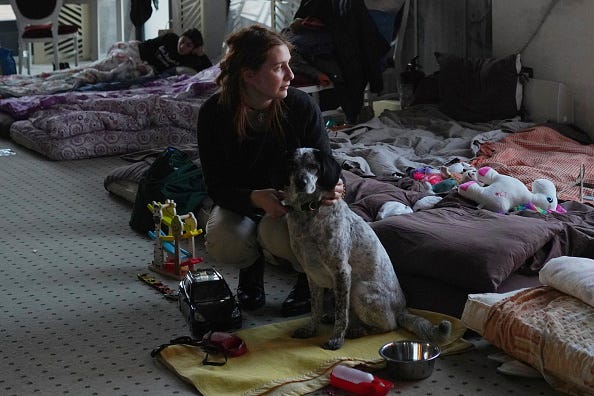
An infectious disease specialist believes Russia's war on Ukraine could have an impact on the COVID-19 pandemic.
COVID-19 rates are rising around the world. In the United States, the omicron subvariant BA.2 is quickly becoming the dominant variant.
As it seems more likely that the surge in Europe will bleed into the United States, it's unclear how the country is going to respond differently from past surges.
BA.2 is already raising red flags, as it is 80% more transmissible than the previous strain, said Dr. Dean Blumberg, an infectious disease specialist with UC Davis on KCBS Radio's "Ask an Expert" on Friday with Holly Quan and Jason Brooks.
"And it's been tripling in proportion every two weeks," he said.
Right now, it counts for about 23% of circulating strains in the United States. The tipping point, to when this might turn into a surge, is 50%, said Blumberg.
"So maybe in the next few weeks it’s possible it might indicate another surge is coming," he said.
Although the loosening of restrictions and dropping masking mandates might contribute to more cases, the warm weather is likely to help reduce transmission, as transmission is typically higher in the winter.
But this will all mainly depend on the proportion of the population susceptible to the new strain.
"It appears that the immunity that we acquire from previous infection or immunization in terms of protecting us from breakthrough infections is probably at minimum three to four months," said Blumberg.
The most recent surge, in late January, suggests that then a surge in April through June is possible, he said.
Another unfortunate outcome of the Russia Ukraine conflict is that the outpouring of refugees fleeing the violence in Ukraine could potentially add to the next surge, he said.
"People are escaping with their lives and the last thing that they need to be concerned about is protecting themselves by masking," said Blumberg.
"Certainly during these crisis situations, it could lead to an uptick in the number of cases," he said.
And the environment in which most of these refugees find themselves in usually doesn’t allow for much social distancing. "We've all seen the pictures of crowded cars, and trains, and train stations," said Blumberg, which is going to be an additional risk factor for spreading the virus.
For solutions to mitigate the upcoming surge, it's unlikely that an additional booster will provide all that much more protection, with studies showing that the second booster provides only a mild increase in neutralizing antibodies.
But if the second round of boosters is authorized, that creates a different issue.
"The question is what is the optimal timing of all that," said Blumberg. "I don’t think we want to get boosted like all the time, like several times a year."
"That's just not feasible," he said. Ultimately, more research needs to be done on the timing for when to administer boosters.
Pfizer is asking for approval for a second booster for those aged 65 and older, while Moderna is seeking approval for people aged 18 and up.
How effective are COVID-19 vaccines for kids?

LISTEN on the Audacy App
Sign Up and Follow Audacy
Facebook | Twitter | Instagram


